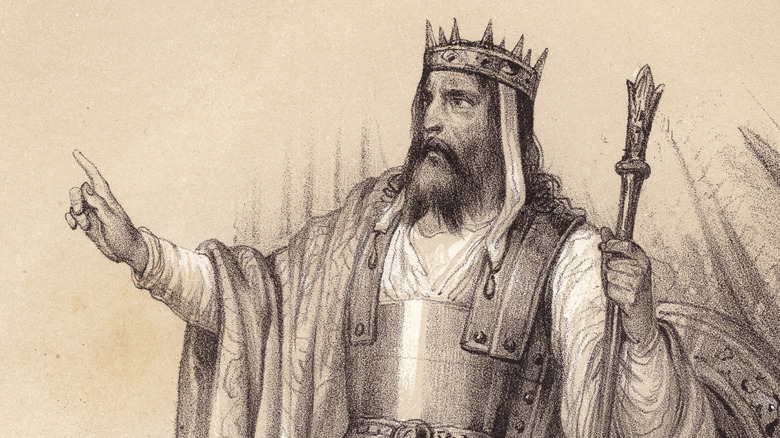Why Do So Many People In The Book Of Genesis Have Long Lifespans?
A literal reading of the Book of Genesis presents the world as a very different place before the great flood. Not the least of those differences is the average lifespan. Genesis 5 (via Bible Gateway) lists all of the patriarchs from Adam to Noah, and every one of them was said to live well beyond the highest life expectancy of today. Adam, it was written, lived for 930 years. His son Seth lived nearly as long, at 912 years. Jared, sixth in the line of patriarchs, lived for 962 years, and Methuselah, the eighth in line and grandfather of Noah, lived for 969 years. That makes him the oldest human being mentioned in the Bible, and the oldest in human history according to Christianity.com.
Long lifespans remain part of the Bible even after the flood; Moses lived to 120 according to Deuteronomy 34; but longevity decreased in the time between Noah and Moses. Pastor Nick Batzig of Tabletalk Magazine took these accounts of patriarchal lifespans at their word and explained them as matters of sin, redemption, and multiplication. God, Batzig wrote, gave the earliest humans such long lives so that they could fulfill the directive to "be fruitful and multiply." That God allowed this even after the fall of Adam and Eve is a sign of His ultimate faith in humankind and His promise of redemption. And the shortening of lifespans after the flood was a mercy that limited the time any one man had to sin.
The lifespans could have more to do with numerology than longevity
A literal interpretation of the lifespans of Genesis flies in the face of history, biology, medicine, evolution, and our own lives. This is not lost on believers, many of whom do not take such details as Methuselah's longevity at face value. The field of Biblical scholarship harbors many interpretations — and translations — of Genesis and its peculiarities.
BioLogos, a Christian organization founded by biologist Francis Collins, looked to numerology to explain the long lives attributed to the antediluvian world. It notes the importance of numerology in the ancient world — the attribution of supernatural powers to specific numbers in a way distinct from their literal use. The list of patriarchs in Genesis from Adam to Noah gives an age for each man. These numbers all come to combinations of seven and 60 when converted to months and years, two numbers with numerological significance; seven was tied into the creation myth of the Hebrews, and 60 was the foundational number of Babylonian mathematics.
The resulting combinations resulted in 30 specific ages with a one in 100 million chance of occurring by chance. But while numerological interpretations may make more sense than believing Methuselah literally reached 969, the precise meaning of these numbers for the ancient Hebrews eludes us. Some postdiluvian lifespans may have similar explanations with clearer meanings; Catholic.com notes that both Joseph and Joshua live to 110, a desirable age in the Egyptian culture those men were meant to live in.
The lifespans may have been inspired by a list of Sumerian kings
The Armstrong Institute of Biblical Archeology noted the similarities between the Genesis flood narrative and the Sumerian King List. The list posits eight to 10 generations of kings (depending on the version) before a devastating flood swept through the land and heralded a great change. The Bible matches some lists in that it names 10 patriarchs before its flood. Both accounts of the ancient Middle Eastern world grant the historical characters long lifespans.
In fact, the lives and reigns of the Sumerian kings listed put the biblical patriarchs to shame. The eldest of them is said to have reigned for over 43,000 years, blowing the assertion of Methuselah as the oldest human on record out of the water if either age is taken literally. But numbers given in the list texts are no more straightforward than those in certain sections of the Bible; the reigns of kings weren't even measured in standard years, but in sars (3600 years each).
Scholar Carol A. Hill suggested in an article in "Perspectives on Science and Christian Faith" (via the American Scientific Association) that the list's relation to Genesis was superficial, but that the influence of Babylonian sexagesimal systems may have lingered even as the ancient Hebrews moved to a decimal system, accounting for 60's prominent role in numerological interpretations of biblical ages.


